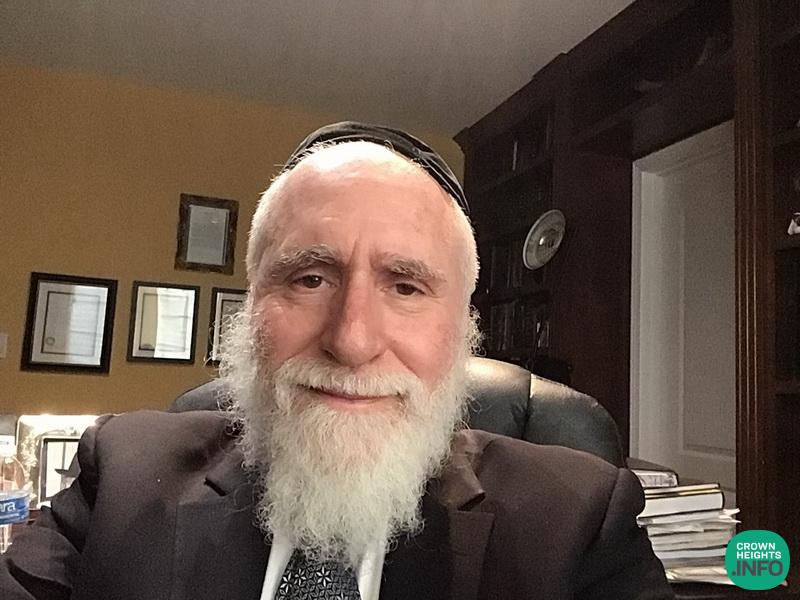
The Holy Day In the Holiday
by Rabbi Dr. Dovid Fox
With the glorious yom tov of Pesach approaching, parents are enveloped in preparation. There is planning, purchasing, and much work to be done. It is entirely normal to become exhausted by the time the Seder begins. With fatigue can come irritability and impatience, and the glory and splendor of the festival can be obscured by the tension at the table.
Maintaining a holiday atmosphere along with salvaging a holy experience in this commemoration of our emergence from bondage into a hallowed nation takes effort and focused planning. Our children need the sedarim to be memorable in positive ways. Parents need these years of raising their families in our wholesome traditions to be seasons of closeness and bonding. Consider some of these recommendations:
Parents: sit down together at least a week before yom tov and forgive one another. Make peace. Renew your commitment to being a team, being caring partners, for each other’s sake and for the sake of your family. Resolve proactively that yom tov is going to be a loving and happy experience for all and that you will check in with each other, support one another, and make efforts to communicate and stay close. Cultivate optimism.
Anticipate the needs and the moods of each child and each guest at the seder, along with discussing in advance that person’s maturity level, their ability to participate in the seder, and any special handling they will need in order to be comfortable and feel included.
Think about the big picture: consider the purpose and function of the Pesach seder and Haggadah and how you plan to get through the many steps of running the evening. Consider that the goals are in fact to create a family celebration within the context of fulfilling the mitzvos. For some adults, their vision is that the evening is going to be one of erudite Torah discourses, and for others, the expectation is that it will be a night of trying to keep young children awake and engaged. You will be disappointed if you do not think ahead about who is attending the seder, what each one is capable of, and how you want the evening to evolve. Plan carefully and plan together. Remember that those who might be classified as any of the “Four Sons” may be present and the seder is for them, too. Some are bright, some are simpler, and some may pose challenges.
It is not only food that must be served. Prepare the Haggadah and the seder sequence in advance. The table is not the place or time to first begin peering into the various sections of the “service” in order to figure out what to talk about. Go through the Haggadah beforehand (many have the custom of reading a large section of it on the preceding Shabbos). Start thinking about the themes of slavery-to-freedom, exile and exodus, and of how our nation evolved. Start thinking about what parts of the Haggadah tend to spark conversation and which parts get overlooked. Remember it is not only the history we should dwell on, but rather the Hallel and praise of Hashem that should be stressed at the seder. The seder, in essence, is a service, a sacred avodah, and there is much tefillah taking place that night. It is about education and intellect, but about feeling and soul too.
Consider what your young children may have done at school to prepare for the seder. If you do not appreciate each one coming to the table with binders full of notes and essays their teacher prepared for them to read aloud, then make time to meet with each child well in advance to share with you their songs and explanations, and help them select the ones which they want to say over, rather than read page after page with emotional detachment as if they are reciting an assignment at the seder. Promote every child’s feeling proud of sharing what they know, songs they like, questions that they have. Show them patience and enthusiasm. They belong with you there, even if they slow you down or cannot yet appreciate your deeper understanding of the intricacies of profound commentaries. Pick out a Haggadah for each family member that he or she can relate to.
Just as a parent will want to be familiar with the flow of the seder in advance, a child can gain greatly when parents acquaint them with the layout of the evening. Either way, be sure to include your children, encourage them to participate, and remember that they are children with levels of attention and comprehension which are age appropriate for them. After all, the mitzvah of the evening focuses on teaching our children about the Pesach saga. Teach them and model for them, which should be more than having them recite someone else’s writings and more than you lecturing to them. When they inquire, you inspire.
Make this yom tov positive by infusing it with inclusion and meaning. Bring achdus into your home and family. Shepherd your children along the Pesach path.
Rabbi Dr. Dovid Fox is a forensic and clinical psychologist, and director of Chai Lifeline Crisis Services.To contact Chai Lifeline’s 24-hour crisis helpline, call 855-3-CRISIS or email crisis@chailifeline.org.













